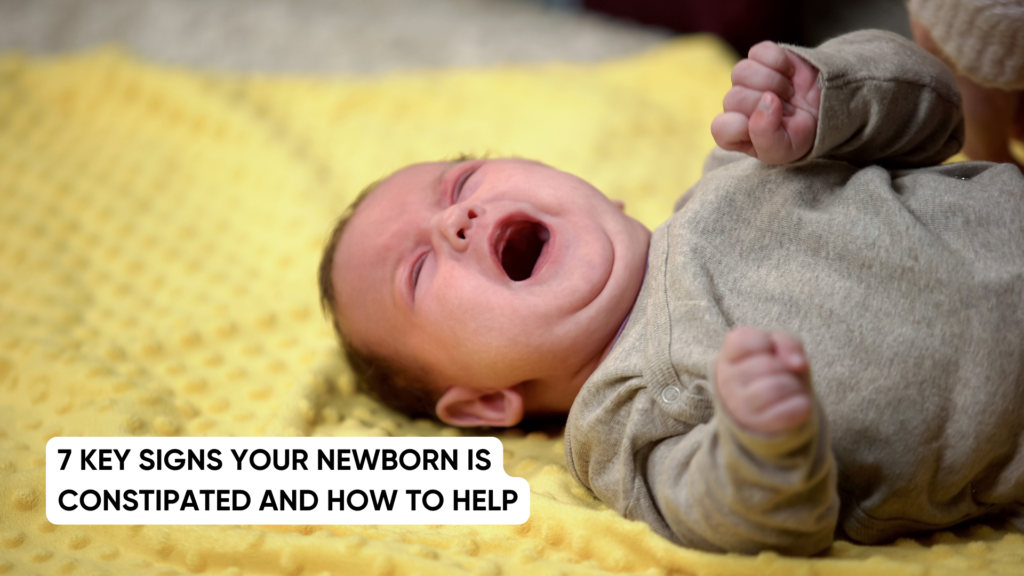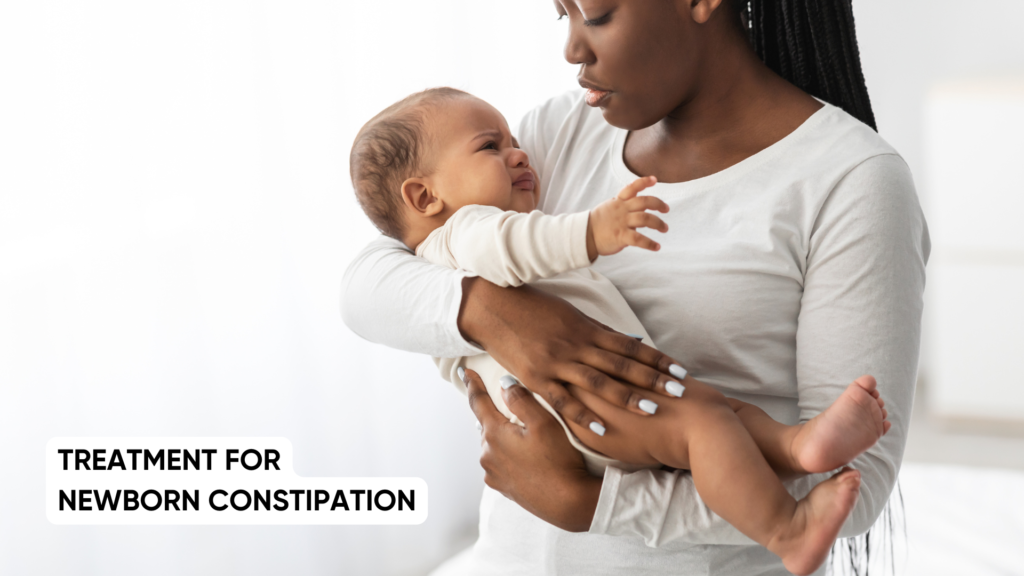Newborns have delicate digestive systems, and it can be tough for parents to know what’s normal and what’s not—especially when it comes to bowel movements. If you’ve noticed changes in your baby’s poop schedule or they seem uncomfortable, they might be constipated. Constipation in newborns is common, but it can still cause distress for both you and your child. In this guide, we’ll go over common signs of constipation in newborns, as well as safety measures to take and easy fixes to help your little one feel better.

Here are 7 signs:
- Fewer Bowel Movements
Newborns usually have frequent bowel movements, especially in the early weeks. If your baby is passing stools less than three times a week, it might be a sign of constipation, especially if accompanied by other symptoms. - Hard or Pellet-Like Stools
One of the clearest signs of constipation is the consistency of your baby’s stool. If the stools are small, dry, and resemble firm pellets instead of soft or mushy, your baby might be constipated. - Straining or discomfort during bowel movements
It’s normal for babies to grunt or make faces when pooping, but if your baby is visibly struggling, turning red, or crying when trying to pass stool, they could be constipated. Straining without passing a bowel movement is another red flag. - Bloated or Tight Belly
Constipation can cause trapped stool and gas, which could lead to your baby’s abdomen feeling hard or swollen to the touch. This could also lead to discomfort and fussiness. - Decreased Appetite or Refusing Feeds
Constipation can cause a decrease in appetite. Your baby might eat less or turn away from the bottle or breast, as the discomfort in their belly makes feeding less appealing. - Excessive gas or foul-smelling gas/stools
A backup in your baby’s digestive system may manifest as excessive or particularly foul-smelling gas. Constipated stools can also have a stronger odor than usual. - Fussiness and Irritability
Babies who are constipated often become more irritable or fussy due to the discomfort. If your baby seems more unsettled than usual, especially if paired with any of the above symptoms, constipation could be the cause.
Treatment for Newborn Constipation

- Tummy Massage: Gently rub your baby’s abdomen in a clockwise direction to encourage loose stool. This is beneficial for digestive health as well as pain.
- Bicycle Legs Exercise: Your baby should be on their back when you gently cycle their legs. This encourages bowel movements and makes trapped gas easier to release.
- Warm Bath: A warm bath will help your baby’s muscles relax and relieve constipation, making it easier for them to pass stools.
- Adjust Feeding: Consider giving your baby more feeds during breastfeeding to ensure that they stay hydrated. For formula-fed babies, speak with your pediatrician about formula substitutions or adjusting the water-to-formula ratio.
- Offer Small Amounts of Water (For Babies Over 6 Months): If your baby is older than six months, giving them small amounts of water can help soften their stools.
- Check with Your Pediatrician: Consult your pediatrician as usual before attempting over-the-counter treatments such as prune juice or glycerin suppositories. The treatments that are recommended will depend on your baby’s requirements.
Newborn constipation can frequently be relieved with these gentle remedies, so your baby will soon feel more comfortable.

